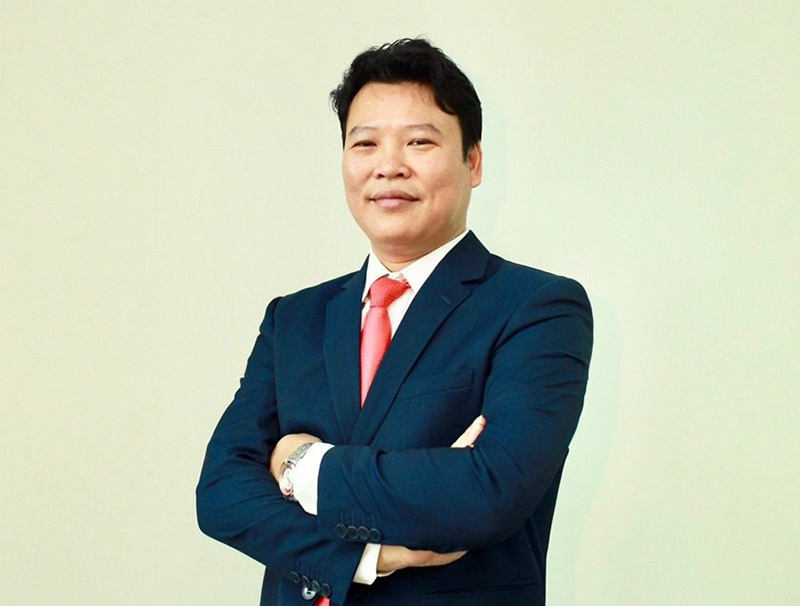Successfully managing the risky business of COVID-19
 |
| Dzung Dao CPA (Aust.), chairman of UHY Auditing & Consulting Co., Ltd. |
Lockdowns have significantly restricted operations in labour-intensive sectors, with supply chains and operations impeded across all industries. Ongoing international transport and logistics disruptions have hampered export-focused trade while companies contend with labour supply shortages and cash flow unpredictability.
Amidst the continuing crisis, accounting and finance professionals have an essential role to play in helping steer businesses to safety.
Dzung Dao CPA (Aust.) is the chairman of UHY Auditing & Consulting Company with more than 25 years of experience in professional services, including audit, accounting and financial advisory, and financial restructuring to large-scale enterprises across all economic sectors.
He said the COVID-19 pandemic has taken a substantial toll on businesses. By the fourth wave of outbreaks in 2021, many smaller firms were in desperate trouble. The road ahead is uncertain as companies assess the ongoing challenges.
"Many businesses had to spend their last meagre reserves of capital on maintaining production and business activities, waiting for the day when the pandemic is under control to be able to start business again," he said. "Sadly, many of these businesses do not have the necessary resources to return to regular business even when the pandemic is under control."
He said the prolonged lockdowns and related supply chain issues have resulted in shortages of production materials and labour. Companies have felt the effects from the factory floor to boardrooms.
"Many businesses closed, with production temporarily suspended to prevent the pandemic. Many workers could not come to work and did not have an income, so they could not maintain their livelihoods. A large number moved back to their hometowns, which has created a shortage of industrial workers when businesses reopen for production and trade," Dzung Dao said.
Assessing risk and opportunity
From his perspective as an accounting and auditing expert, Dzung Dao said risk management has been one of the most demanding aspects of managing a business throughout the COVID-19 pandemic. "Many businesses have faced unprecedented risks, so it is difficult to have accurate risk forecasts as well as perfect response solutions," he said.
He said that dealing satisfactorily with this unprecedented risk environment comes down to solid fundamentals. "If the enterprise has built adequate and methodical processes of corporate governance, financial management, and risk management, it will limit losses and even create advantages."
Dzung Dao said organisations must address specific corporate governance issues to remain competitive. "While we cannot eliminate risk, prudent and far-sighted management can minimise potentially adverse outcomes."
He said that finance professionals play a vital role in priming companies for survival and identifying growth opportunities. "Prioritise building a long-term financial strategy, associated with the long-term business strategy of the company. Develop a definite financial plan for each period, short and long term, in line with the previously developed financial strategy to ensure a well-implemented financial strategy, especially cash flow."
He said understanding and controlling the unpredictable nature of cash flow is key to navigating the current situation. "Cash flow plans need to be monitored and updated regularly, and adjusted when risks occur."
"Businesses need to forecast possible risks to operations and the company's financial situation in the long term, building response scenarios for significant risk situations that may emerge and adjusting appropriately," he said.
The complexity of the pandemic and its globalised nature makes it nearly impossible to account for all eventualities. Still, he is confident that "Vietnamese businesses are very dynamic and have many ways to respond to the conditions and circumstances."
He said reality dictates larger organisations are generally better resourced to handle risk, and smaller organisations may need to seek such expertise externally. "Small- and medium-sized enterprises, which generally do not have high-quality personnel in financial management and risk management, should have good relationships with qualified consultants, who are ready to support businesses promptly when special difficult situations arise."
How CPA Australia can help
Accounting and finance professionals play an essential role in supporting businesses to develop the appropriate strategies for success. Similarly, CPA Australia is here to help professionals succeed through continual support and education.
Upskilling and reskilling for leaders and employees are especially crucial in the context of the COVID-19 pandemic. Dzung Dao said he has found it very useful to refresh his knowledge through his CPA membership and associated programmes.
"I was able to consult with other members in many fields to be able to share knowledge and experience to improve our understanding during such difficult times," he said
CPA Australia provides members with internationally recognised qualifications through its highly regarded CPA Program.
It offers a variety of learning resources in multiple channels and through its Micro-Credentials short courses to enhance knowledge and skills for professional development.
Organisations can also utilise CPA Australia's Corporate Learning Solutions to identify their team's strengths and bridge capability gaps.
Feel free to contact the teams in Hanoi or Ho Chi Minh City for more information.
What the stars mean:
★ Poor ★ ★ Promising ★★★ Good ★★★★ Very good ★★★★★ Exceptional
Related Contents
Latest News
More News
- VNPAY and NAPAS deepen cooperation on digital payments (February 11, 2026 | 18:21)
- Vietnam financial markets on the rise amid tailwinds (February 11, 2026 | 11:41)
- New tax incentives to benefit startups and SMEs (February 09, 2026 | 17:27)
- VIFC launches aviation finance hub to tap regional market growth (February 06, 2026 | 13:27)
- Vietnam records solid FDI performance in January (February 05, 2026 | 17:11)
- Manufacturing growth remains solid in early 2026 (February 02, 2026 | 15:28)
- EU and Vietnam elevate relations to a comprehensive strategic partnership (January 29, 2026 | 15:22)
- Vietnam to lead trade growth in ASEAN (January 29, 2026 | 15:08)
- Japanese business outlook in Vietnam turns more optimistic (January 28, 2026 | 09:54)
- Foreign leaders extend congratulations to Party General Secretary To Lam (January 25, 2026 | 10:01)

 Tag:
Tag:



















 Mobile Version
Mobile Version